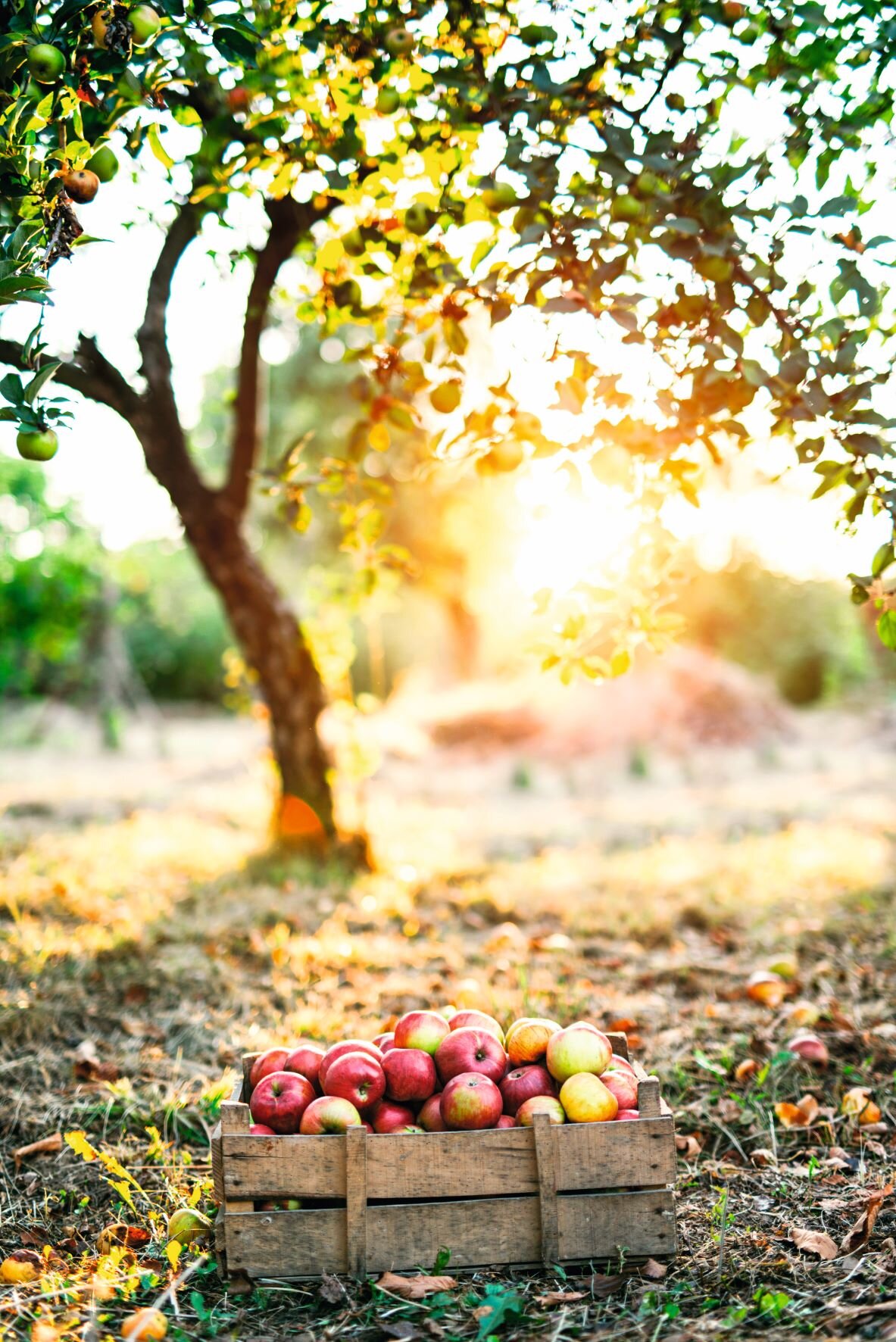Good words and what they mean. This month: the etymology (or ate-‘em-ology) of scrumping
It’s apple harvest time. But if you have a tree, make sure you get there before the scrumpers do. The practice of ‘scrumping’ for apples is as old as apple trees themselves but interestingly the term ‘scrumping’ doesn’t appear until 1886.
Etymologists aren’t sure of its history but it’s thought to come either from a dialectical term meaning ‘something shrivelled or withered’ (which probably comes from the Middle Dutch, schrimpen) or from the adjective ‘scrimp’ which meant thrifty, and later morphed into the verb ‘to scrimp and save’ that we use today.
Both theories are supported by the earliest meaning of ‘scrumping’ which referred not to actual stealing but simply to taking either windfalls or the smallest apples which were left on the trees after the apple harvest was over. So they’d be the slightly shrivelled apples no one wanted, and you’d save yourself money by taking them.
Scrumping is, strictly speaking, illegal and one of those things that is charming and scampish when you are eight years old but tends to be frowned upon once you hit 28 years old. So if you’re going to do it, either take a child with you as cover, or do it on common land and call it ‘foraging’ instead.
Oh, and one last word of caution: if you’re outside the UK, scrumping has a very different and slightly lewder meaning, so proceed with caution. Ask someone to scrumping with you and you might get invited in for more than apple crumble.
Core values: Apple recipes for your illegal wares
If you’ve been scrumping (or just been to the farm shop) here are a few apple recipes from our blog that will soon see off a glut.
Bircher Muesli with Cinnamon and Grated Apple
Crab Apple and Fennel Seed Leather
Buy this month's The Simple Things - buy, download or subscribe






